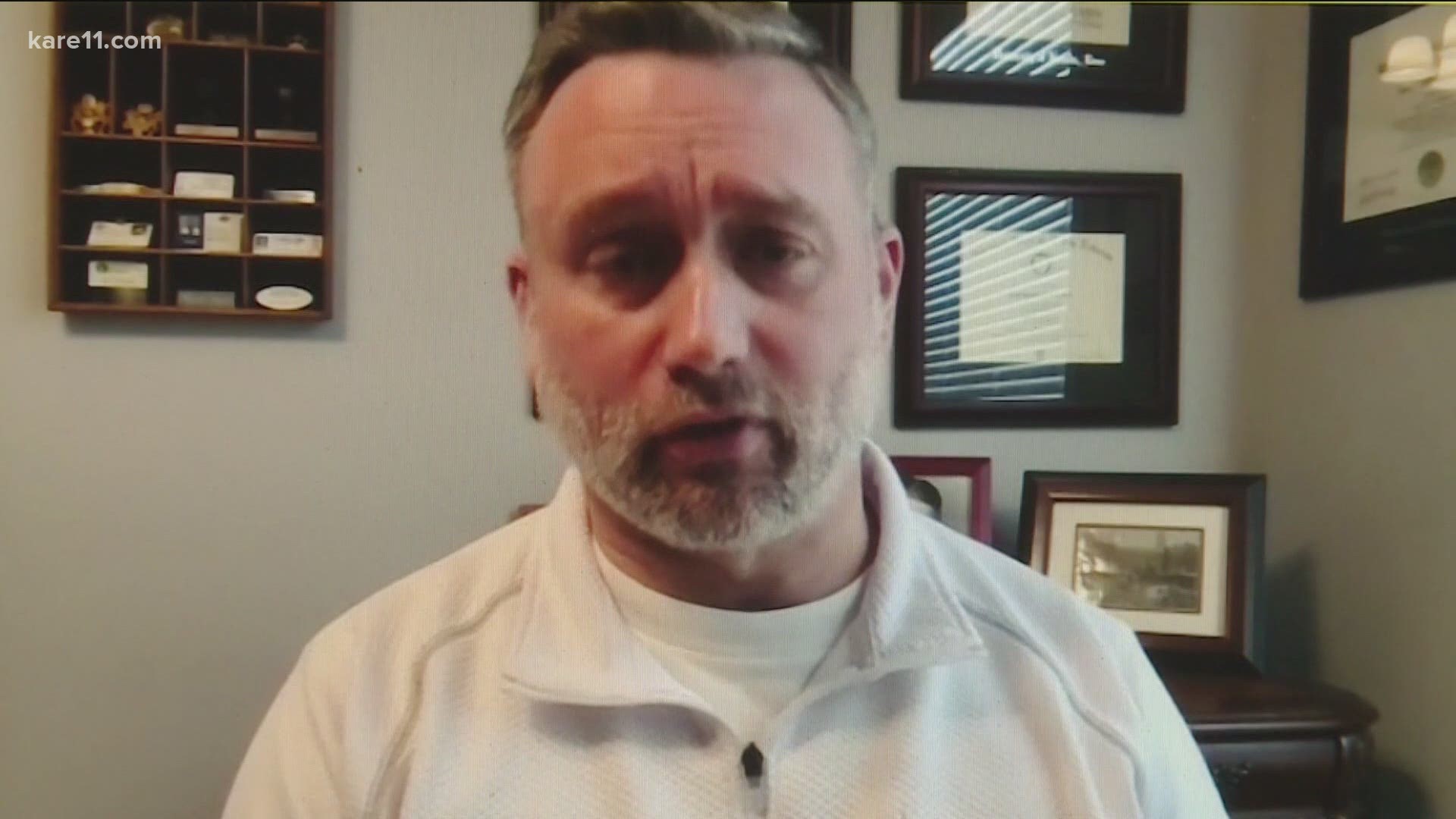MINNEAPOLIS — As news of the shooting inside a Buffalo clinic quickly spread on Tuesday, Dr. Scott Colson's mind began to race.
"My first thoughts were for the people in the clinic," Dr. Colson said.
Though not affiliated with Allina Health, the attack hit close for Dr. Colson. He's a family physician and owner of Voyage Healthcare, a small network of four clinics that employs about 300 people across the Twin Cities metro.
Kent Erdahl: "Have you had a chance to communicate with your employees? How are people doing? What's it like today?"
Dr. Colson: "It's challenging. We're struggling. It's scary. I could see this sort of thing happening in our offices. Immediately, when I first saw the headline, I was taken right to my clinic, thinking, how would it be handled? How would we manage things?"
Dr. Colson has been asking versions of those questions for years, especially since the rise of narcotic painkillers, like opioids.
"My father was a retail pharmacist and twice in his career, in Las Vegas, he was held up at gunpoint for narcotics," Dr. Colson said.
Though many pharmacies have been able to manage threats thanks to increased security in recent years, Dr. Colson says small clinics, by nature, are much more difficult to secure.
"I think it's important for us to have protocols in place to try to keep our staff, our patients, our providers as safe as possible," Dr. Colson said. "But how do you offer some supportive security in a small setting like that physician's office?"
Meanwhile, Dr. Colson says laws limiting opioid prescriptions have put more pressure on the relationship between doctors and patients.
Dr. Colson: "I think we've all, in healthcare, especially those of us in primary care – where we develop long term relationships – we've had situations where we've gotten into disagreements with patients and had fear. I've been fortunate to have never been in a situation where we've had to have a restraining order against a patient, but I've certainly sat in exam rooms where I didn't feel safe. I've had people outside the door in case something were to go wrong."
Erdahl: "Do you think people understand the threats that doctors might be negotiating day to day?"
Dr. Colson: "I think that it's starting to come to light that there are threats and true physical abuse that happens in healthcare, and unfortunately, we are often taught to turn the other cheek because we're there to take care of patients, no matter what the underlying problem is."
Dr. Colson says he, like many, also has serious questions about how a man with a restraining order, and a documented history of threats reported by his physician, could still allegedly get his hands on weapons and pull off such a horrific attack. Though, as we all wait for answers, he says we should start by looking inward, while thinking of others.
"I think the pandemic has been hard on most everyone's mental health," he said. "I encourage people to be kind to one another. Be respectful of one another."

